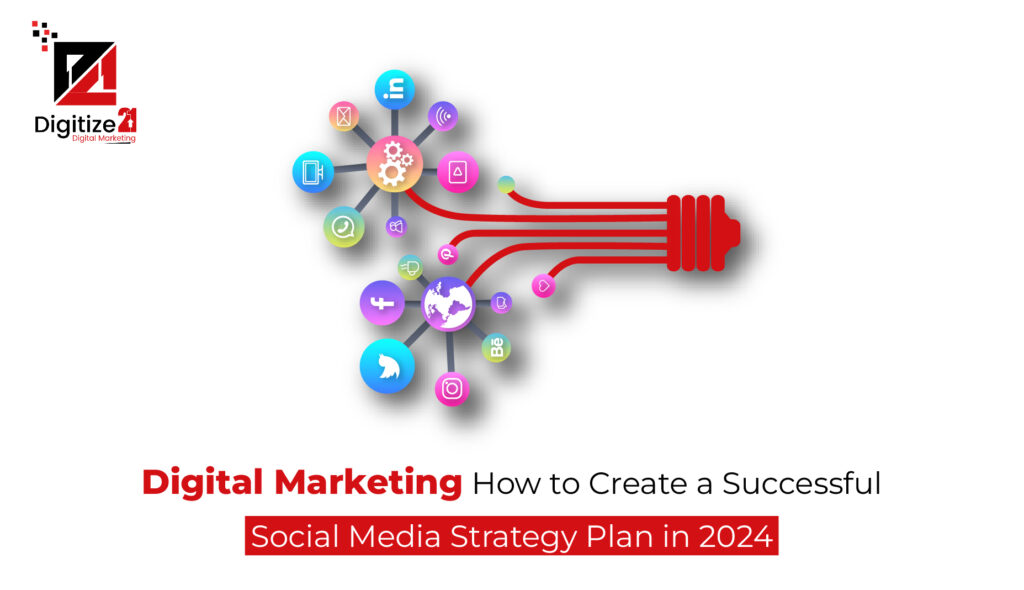Both individuals and businesses need to have a strong social media presence in the modern digital era. You need to have a carefully designed social media plan whether you’re trying to engage with a larger audience, promote a brand, or develop your brand. But developing an effective social media strategy can be difficult given how social media platforms and user behavior are always changing.
What are your strategies for using social media marketing to promote your brand? Making a social media marketing plan is the initial step you should take if you want to succeed on the platform.
A social media marketing plan is a written document that outlines the objectives and a strategy for achieving your company’s social media goals. You can develop your brand and market on social media more methodically and strategically if you have a social media marketing plan in place.
Continue reading to find out why it’s so important to have a social media marketing plan and how to develop on for your business.
What is a social media marketing plan?
A social media marketing plan is simply a road map outlining the objectives and strategies for achieving the goals your organization wants to accomplish on social media. The following information could be found in a social media marketing plan:
· Social media channels you plan on using
· Social media marketing goals
· Social media marketing tactics
· Key performance indicators (KPIs)
· Customer profiles
· Market research
· Social media content calendar
Steps to create your social media marketing plan
Making a social media marketing plan can help you succeed on social media and ultimately save you time and hassle, even though it may need some initial work and energy.
If you’re just beginning, creating a social media marketing strategy could seem perplexing, but it only takes a few simple steps to get started.
Goal setting.
Identifying your goals is the first step in developing a successful social media strategy. By becoming active on social media, what do you want to accomplish? Your strategy will have direction if your goals are clearly stated, regardless of whether they are to increase sales, generate leads, increase brand awareness, or drive website traffic.
Make sure to create SMART goals for your social media marketing strategy so you can track your progress.
Determine your target audience.
Identifying the audience that your social media accounts are meant for is important. Create customer profiles to identify your ideal clientele. You may better segment your audience and discover a voice that connects with your business by understanding parameters like a customer’s age, economic level, geography, and more.
Choose the Right Platforms.
Not every social media site will work for your brand or business; not all of them are made equal. Choose the platforms where the people in your target audience are most engaged and where you think your content will work the best. Take into account variables like interaction levels, demographics, and the kinds of content that each platform supports.
Optimize accounts.
The profile page is one of the most important things to consider while improving your social media accounts.
To maximize your account and help visitors understand the purpose of your page, make sure that all of the profile fields are filled out completely. Ensure that the information in your bio, profile image, and other areas is current and consistent with the goals of your brand.
Choose a posting strategy.
what kinds of content you should post and when are outlined in a posting plan. Your posting style will probably change depending on which social media platforms you use. While some social media platforms are better suited for text or images, others work well for videos.
Additionally, you should decide how frequently to post. To make your account appear active and to provide followers with opportunities to interact with your content, you should generally publish on a reasonably regular basis.
Use social media management tools.
Organizing and managing several social media channels is simple using social media management software.
You may save time by scheduling posts with a social media management platform and you can assess performance by looking at important data and insights. All of your digital assets can be managed and stored using platforms for Content Studio.
Stay Updated and Adapt.
New platforms, features, and trends appear regularly, resulting in a continually changing social media ecosystem. Keep yourself updated about the most recent advancements in social media marketing, and be prepared to modify your approach as necessary to be effective.
Keep an eye on your competitors and industry influencers to learn from their successes and Keep an eye on your competitors and industry influencers to learn from their successes and failures.
Iterate and Improve.
Developing a strong social media presence is an ongoing process that calls for constant learning and development. Analyze your performance statistics, get audience input, and pinpoint areas where your approach needs to be improved. Try out different strategies and ideas, and don’t be scared to change course if something isn’t working.
Every company wants to be active on social media, but success requires patience, diligence, and proper equipment. Your company may stand out on social media with a carefully planned social media strategy that takes into account the needs of your target audience, is grounded in industry and consumer data, and addresses their problems.
Utilize social media to promote your business by developing a solid plan and strategy.



